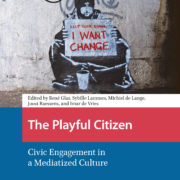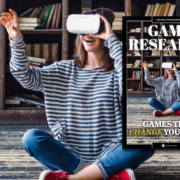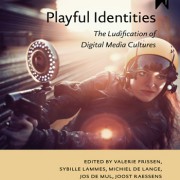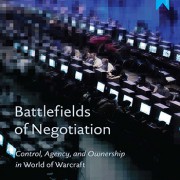Events
Learning through Games: Moving Goal Posts in Educational Game Design
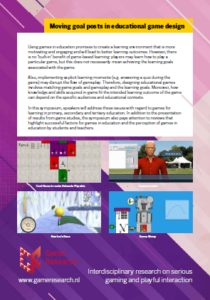 In the symposium “Games for Learning: Moving goal posts in educational game design”, scholars from a variety of disciplines as well as industry professionals met to discuss strategies for the developments and use of games in the classroom. As the educational potential of games depends on the age group targeted as well as the infrastructural context, the symposium addressed primary, secondary and higher education individually.
In the symposium “Games for Learning: Moving goal posts in educational game design”, scholars from a variety of disciplines as well as industry professionals met to discuss strategies for the developments and use of games in the classroom. As the educational potential of games depends on the age group targeted as well as the infrastructural context, the symposium addressed primary, secondary and higher education individually.
Prof. Wouter van Joolingen, scientific director of the Freudenthal Institute for Science and Mathematics Education, opened the event by reminding participants, that playing a game is always a learning experience, as players familiarize them with the specific rules and constraints, trying to devise a viable strategy to reach their goals. But game goals and learning goals are not always identical, and to meaningfully combine them requires a reflective design process, bringing together experts on games, pedagogy as well as the given subject matter.
Game-Based Instructional Techniques
To use games for learning effectively, a solid empirical foundation is necessary. Dr. Pieter Wouters reported on how fruitful game-based instructional techniques have been in previous focus group tests, both to foster understanding and to motivate learns to engage more thoroughly with the topic at hand. Dr. Martijn Koops from the Instituut Archimedes at the Hogeschool Utrecht complemented this perspective by discussing his own hands-on experience with games he developed and implemented together with students.

Hester Stubbé-Alberts (TNO) demonstrated with her presentation on the design of mathematics games for primary school education in Sudan that, depending on the socio- economic circumstances, the roles of stakeholders can be very different. In developing countries, games for learning can play an important role in decentralizing the educational system; for that purpose, however, cultural specificities need to be integrated into the game design and practical issues such as affordable hardware and consistent power supply need to be solved.
Designing Games for Secondary and Higher Education
Anne van der Linden, PhD candidate at the Freudenthal Institute, and Dr. Judith ter Vrugte, university lecturer at the department of instructional technology (University of Twente), initiated the second part of the symposium, by addressing best practices for the design of educational games for secondary education. The games discussed during the presentations focused on teaching Newtonian physics and prevocational mathematics respectively, thereby demonstrating the particular benefits of games in STEM (Science, technology, engineering, and mathematics) education contexts. However, both lecturers also addressed the fact that educational game design is not a linear process but a constant cycle of focus group testing and refinement, which can sometimes lead into productive but unforeseeable directions.

The last part of the program comprised presentations on games in higher education by Diana Zwart, lecturer at the Hogeschool Windesheim, and Dr. Stefan Werning, associate professor for New Media & Game Studies at Utrecht University. The two research projects pursue very different learning goals, mathematics education for nursing students on the one hand and the game-based analysis of datasets in a BA course for media studies on the other. Consequently, the also proposed very different solutions: while Diana Zwart demonstrated the value of using established virtual environments like Second Life for educational purposes, Stefan Werning advocated Analytical Game Design as a more exploratory, practice-based research approach towards educational game design.
Finally, Prof. Liesbeth Kester concluded the symposium by encouraging the participants to reflect on their personal take-aways. Even though (computer) games have been systematically used as learning tools since the early 1980s, this field of research has grown tremendously in the past few years, as design tools become more accessible and affordable, and new technologies like VR/AR applications keep pushing onto the market. Yet, despite their promises, games for learning are never a one-size- fits-all solution but need to be carefully adapted to the given stakeholders, audiences, and institutional contexts to unlock their full potential.


